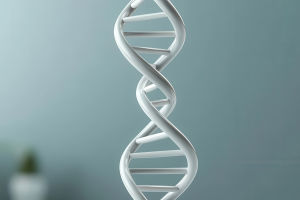It's 3 p.m. You're not hungry. But you open the pantry anyway. Next thing you know, you're elbow-deep in chocolate-covered pretzels, wondering where the bag went—and why you can't stop even though you're stuffed.
You blame willpower. Or boredom. Or stress. But what if it's not you? What if it's your brain—hijacked by sugar, lipids, and salt in ways that look a lot like… addiction? Turns out, it's not "just self-control." Science shows certain foods trigger the same reward circuits as addictive substances. And once those circuits light up? Stopping feels impossible.
Why your brain treats cookies like stimulants(kind of)?
It's not a metaphor. Researchers at Yale developed the "Yale Food Addiction Scale" after finding that people who score high show brain activity nearly identical to substance users when shown images of ice cream or donuts.
Here's what's happening under the hood:
• Dopamine spikes hard when you eat hyper-palatable foods (think: chips, candy, pastries). That's the "feel-good" chemical. Your brain goes, "More. Now."
• Tolerance builds. Just like with caffeine or nicotine, you need more sugar or lipids to get the same rush. That's why one cookie turned into four. And why four doesn't feel like enough anymore.
• Withdrawal is real. Cut sugar cold chicken? You might get headaches, irritability, fatigue—even brain fog. A 2018 study in the British Journal of Sports Medicine called sugar "the new nicotine" for its addictive profile.
This isn't about gluttony. It's neurochemistry. Your brain's wired to seek high-energy foods. Back in caveman days, that kept you alive. Now? It keeps you reaching for the snack drawer.
4 sneaky traps—and how to escape them
1. The "I'll just have one" lie
For some brains, "one" is never enough. If you know that's you? Don't keep trigger foods in the house. Seriously. One nutrition coach told her clients: "If it's in your pantry, it's in your mouth." Harsh? Maybe. True? Absolutely.
2. Emotional eating isn't weakness—it's wiring
Stress → cortisol → cravings for sugar/lipids. It's biology. Instead of fighting it, redirect it. Keep crunchy carrots, frozen grapes, or air-popped popcorn nearby. Texture helps. Volume helps. Distraction helps.
3. Sleep less = crave more
Skimp on sleep? Your hunger hormones go haywire. Ghrelin (the "eat me" hormone) rises. Leptin (the "I'm full" hormone) drops. One study found sleep-deprived people ate 385 extra calories the next day—mostly from snacks. Fix your sleep, and cravings often fix themselves.
4. Protein + fiber = craving kryptonite
Eat a breakfast with 20+ grams of protein (Greek yogurt, eggs, tofu scramble) and you'll snack less by noon. Add fiber (oats, berries, chia) and you stay full longer. A 2020 trial in the journal Obesity showed high-protein breakfasts cut evening snacking by 60%.
What actually works (spoiler: it's not willpower)
Forget "just say no." That doesn't work for nicotine. Doesn't work for sugar.
Try this instead:
• Delay, don't deny
Craving hits? Set a timer for 15 minutes. Drink a big glass of water. Walk around the block. 80% of the time, the craving passes. Your brain just needed a distraction.
• Eat the snack—on a plate
Sounds weird. Works. Grabbing from the bag = mindless eating. Putting it on a plate = mindful eating. You'll eat less. Enjoy it more. Feel less guilty.
• Reset your palate
Go 3–5 days without added sugar or ultra-processed snacks. Your taste buds recalibrate. Suddenly, fruit tastes sweeter. Dark chocolate? Actually satisfying. That bag of gummy worms? Way too much.
You're not broken. You're being played.
Food companies spend millions engineering snacks to override your off switch. Crunch. Melt. Salt-blast. Sugar rush. They're not accidents.
But you've got science on your side.
Start small. Pick one snack trigger—afternoon, post-dinner, during Netflix—and swap in one better habit. Maybe it's herbal tea. Maybe it's a 5-minute stretch. Maybe it's literally brushing your teeth early (no one wants to ruin minty freshness with chips).
Progress isn't perfection. It's noticing. It's pausing. It's choosing differently—just once. Then again.
Your brain didn't betray you. It's just doing what it was taught. Time to teach it something new.
So next time you reach for that snack… stop. Breathe. Ask: "Am I hungry—or is my brain just ringing the bell?"
Then? You get to decide what happens next.


